News & Events 2023
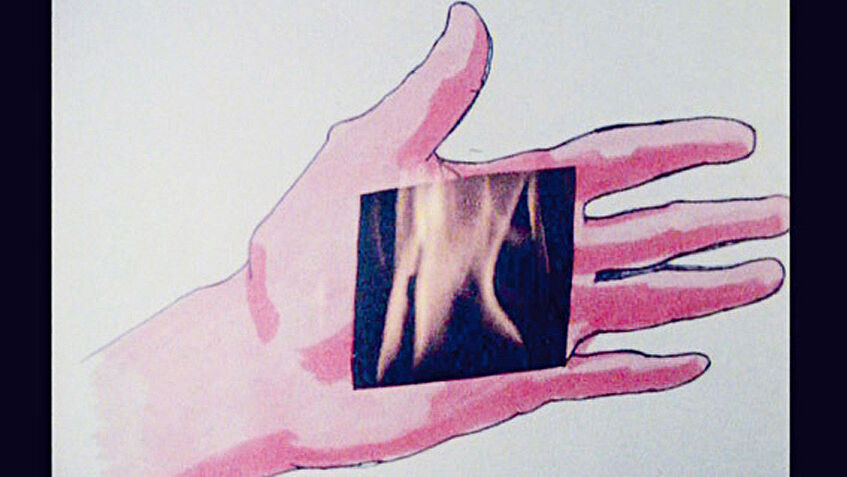
LIFTING STONES. ZUM FILMISCHEN WERK MARIA LASSNIGS
18.01.2023 09:00 - 20.01.2023 16:00
Im Zuge der Leipziger Buchmesse findet von 18. bis 20. Jänner ein Symposium zum Werk von Maria Lassnig statt. Melanie Letschnig spricht am Freitag über Kärnten/Koroška und die Animationsfilme von Maria Lassnig.
Das Symposium kann per Zoom besucht werden, nähere Infos auch zum Programm sind hier zu finden:
www.ifk.ac.at/index.php/kalender-detail/lifting-stones-zum-filmischen-werk-maria-lassnigs.html
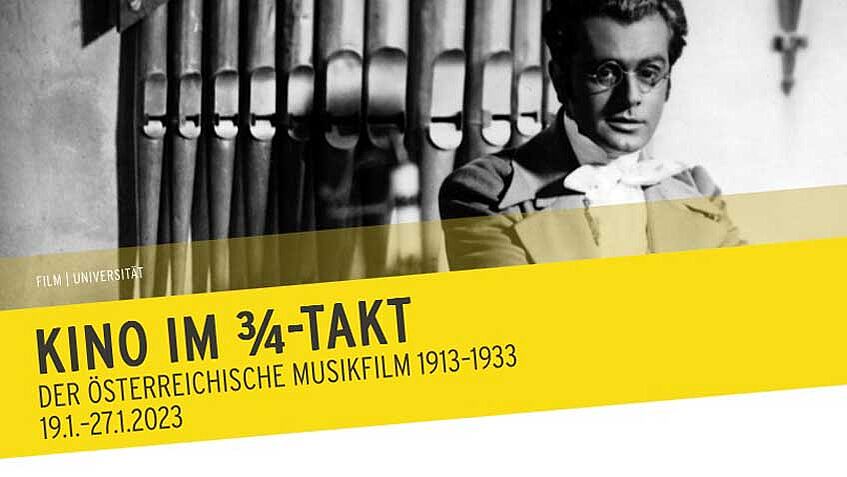
19.01.2023 18:30 - 27.01.2023 20:00
Kino im 3/4 Takt
Weitere Informationen:
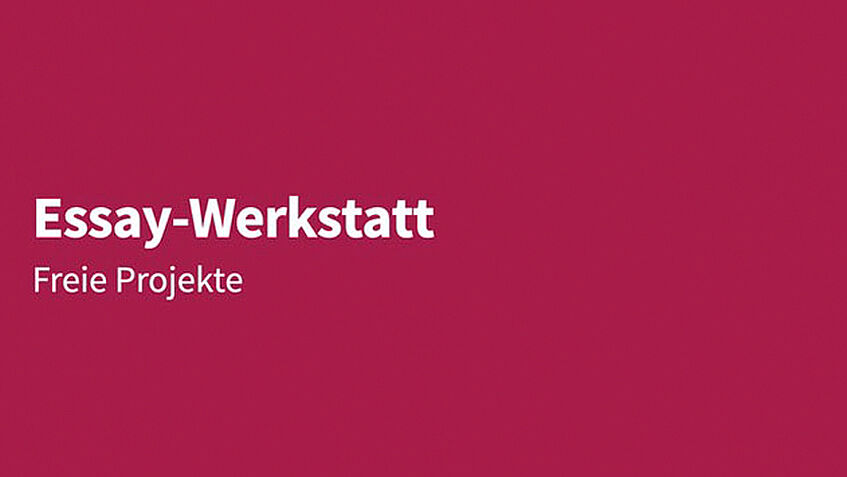
Lehrveranstaltung „Radio-Werkstatt" von Thomas Waitz
Radio-Essay von Mariel McLaughlin im Deutschlandfunk
Im Rahmen der Lehrveranstaltung „Radio-Werkstatt" von Thomas Waitz lernen und erproben tfm-Studierende essayistisches, kulturwissenschaftliches Schreiben für den Hörfunk. Eine der Abschlussarbeiten ist nun vom Deutschlandfunk produziert worden: "Vom Mythos des Backpackings. Essay über die falschen Versprechen des Reisens“ von Mariel McLaughlin wird am 29. Jänner 2023 in der Sendereihe „Essay und Diskurs“ ausgestrahlt und steht anschließend als Podcast zur Verfügung.
McLaughlins Beitrag befasst sich mit dem Versprechen transzendente Erfahrungen, das an Fernreisen geküpft wird: Wir können Andere werden, Anderen begegnen, unsere Grenzen kennenlernen und überwinden. Doch die Sehnsüchte sind unerfüllbar und basieren auf kolonialistischen Mustern.
Mit ihrer Reise quer durch Südamerika wollte Mariel McLaughlin sich verändern. Begegnungen mit unberührten Kulturen, der Kampf gegen Unwetter und widrige Situationen, von all dem versprach sie sich eine einschneidende Erfahrung, zumindest aber eine attraktive Station im Lebenslauf. Doch McLaughlin stellte ernüchtert fest: Auf Reisen nimmt sie sich immer selbst mit. Die Einheimischen bleiben Fremde und spiegeln ihr nur ihren exotisierenden Blick wider. Grand Tours, Hippie Trails damals und Backpacker-Reisen heute folgen alle tiefen kolonialistischen Mustern. Reisen hält nicht, was es verspricht – aber es erschüttert auf unerwartete Weise.
Die Lehrveranstaltung „Radio-Werkstatt“ ist ein Angebot im Masterstudium Theater-, Film- und Medienwissenschaft. Die Teilnehmer_innen verfassen zu einem medienkulturwissenschaftlichen Thema Ihrer Wahl ein Radio-Essay, das sich an ein intellektuell interessiertes, außerakademisches Publikum richtet. Die Lehrveranstaltung begleitet den Forschungsprozess, der diesem Schreibprojekt vorangeht. Studierende erlernen und erproben die Techniken und das Handwerkszeug kulturwissenschaftlichen Forschens und denken gemeinsam wird über Essayistik und die eigene Position, die im Schreiben eingenommen wird, nach. Dadurch üben sich Studierende in eine Textsorte ein, in der es besonders auf die eigene Argumentation und Reflexion ankommt.
Mariel McLaughlin, geboren 1993, studierte Empirische Kulturwissenschaften an der LMU München. Aktuell schließt sie ihr Studium der Theater-, Film und Medienwissenschaft ab. Journalistisch war sie bisher für die Süddeutsche Zeitung und Neon tätig.
Thomas Waitz ist Tenure-Track-Professor für Medienkulturwissenschaft am Institut für Theater-, Film- und Medienwissenschaft der Universität Wien.
Homepage der Sendung „Essay und Diskurs“:
www.deutschlandfunk.de/essay-und-diskurs-100.html
Podcast:
itunes.apple.com/de/podcast/essay-und-diskurs-deutschlandfunk/id135050618
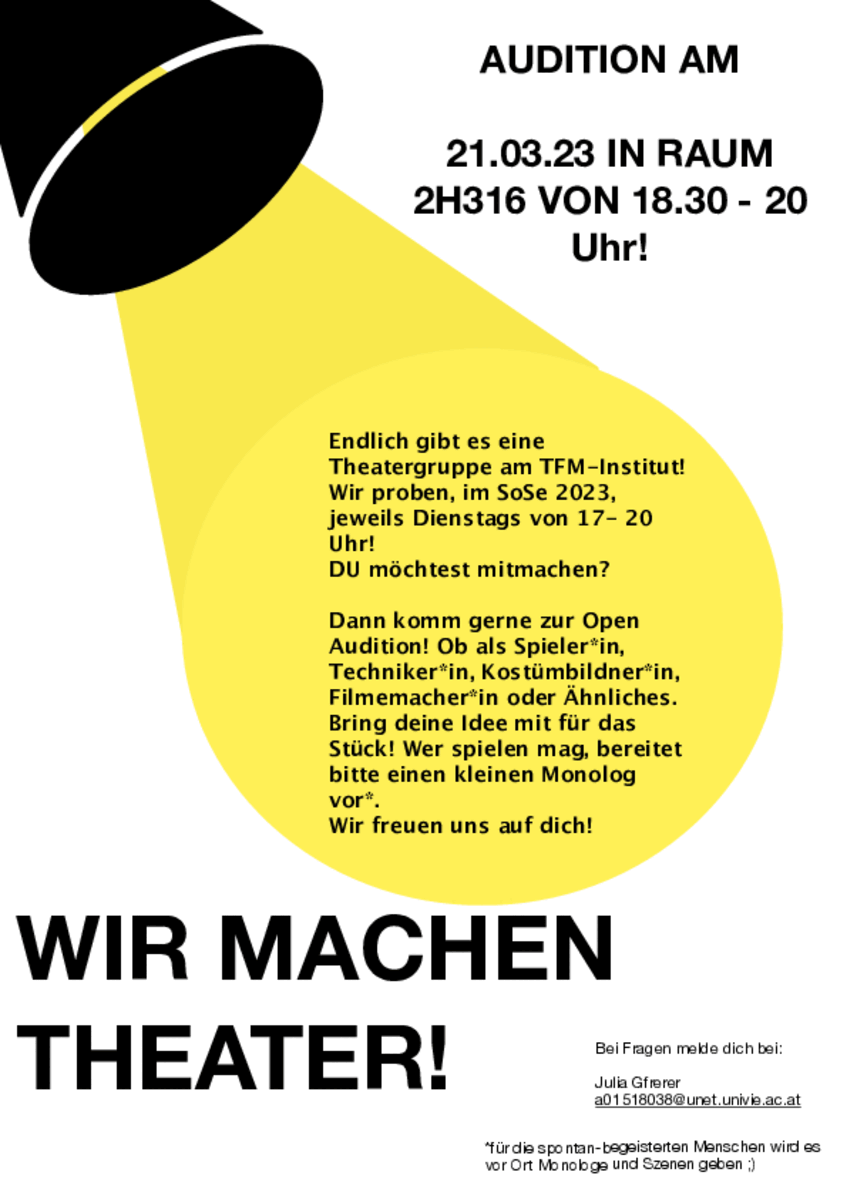
21.03.2023
Das Institut stellt Theaterbegeisterten Proberäume zur Verfügung, damit gemeinsam Ideen für verschiedenste Theaterstücke (ggfls auch Kurzfilme) erarbeitet und umgesetzt werden können. Ein Raum zum Kennenlernen, Ausprobieren, Verwirklichen.
Wir freuen uns auf alle, die dieses Semester dabei sein möchten."
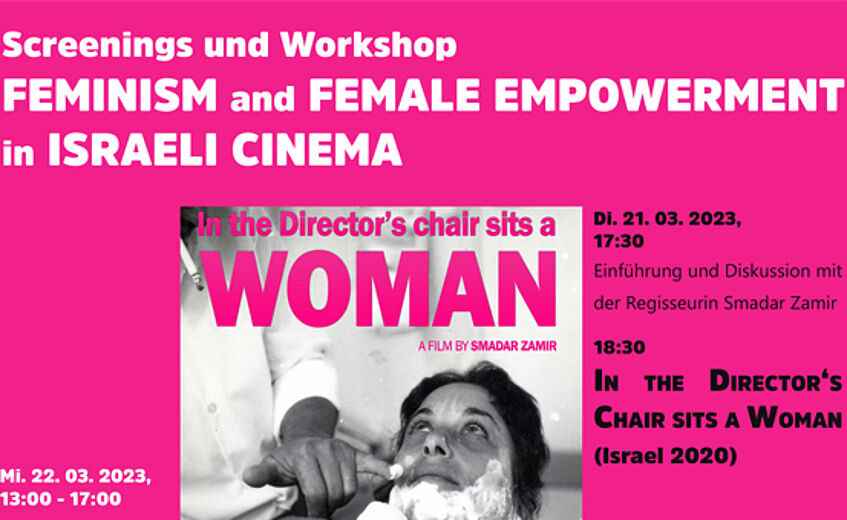
FEMINISM AND FEMALE EMPOWERMENT IN ISRAELI CINEMA
Einladung zum Workshop zu Frauen und Feminismus im israelischen Film am 21./22. März im Metro Kinokulturhaus in Wien.
Im Workshop am 22. März (13-17 Uhr) können Teilnehmende mit Regisseurin Smadar Zamir die Entwicklungen und Besonderheiten des israelischen Films diskutieren.
Gerahmt wird der Workshop von mehreren Filmscreenings:
- In the Director’s Chair Sits a Woman (R: Smadar Zamir, 2020, 21. März ab 17.30)
- Image of Victory (R: Avi Nesher, 2021, 22. März ab 19.00)
- Before Tomorrow (R: Ellida Geira,1969, 28. März ab 17.30)
Anmeldung bei verena.hanna.dopplinger@univie.ac.at
Der Workshop ist Teil der Vorlesung und Filmreihe zu „The Female Challenge: Frauen im israelischen Film“ von Prof. Frank Stern und findet in Kooperation mit dem tfm | Institut für Theater-, Film- und Medienwissenschaft statt.
Er wird gefördert aus Mitteln der DSHCS und der Professur für Kultur-, Wissens-, und Geschlechtergeschichte.

Performancekunst in den realsozialistischen Ländern Europas
Noch nicht lieferbar. Sie können diesen Titel vormerken. Erscheint März 2023
» An der Zensur vorbei: Künstlerische Performances hinter dem Eisernen Vorhang «
Adam Czirak führt in die Geschichte der osteuropäischen Performancekunst ein. Wie gelang es den Protagonist:innen eines verbotenen Kunstgenres, die staatssozialistische Zensur und Auftrittsverbote durch eine melancholische Inszenierungspolitik des Körpers auszutricksen?
Öffentliches Schweigen oder Schlafen, Selbstbespiegelung und Selbstverletzung: Diese und andere Motive des Melancholischen spielten in der Performancekunst hinter dem Eisernen Vorhang eine entscheidende Rolle.
Adam Czirak widmet sich der Entstehung und Entwicklung eines verbotenen Kunstgenres im europäischen Ostblock während des Kalten Krieges. Im Zentrum stehen künstlerische Aktionen, die ausschließlich einem kleinen Publikum zugänglich waren. Mit dem melancholischen Rückzug aus den Routinen des Alltags gelang es den Künstler:innen, die ideologischen Normalitäten des Staatssozialismus zu entlarven und die kulturpolitische Zensur sowie Auftrittsverbote zu umgehen.
Der Autor
Adam Czirak ist Senior Lecturer am Institut für Theater-, Film- und Medienwissenschaft der Universität Wien. Seine Arbeitsschwerpunkte sind Theorie und Ästhetik des Gegenwartstheaters, Geschichte der Performancekunst und Dramaturgieforschung.
Schlagworte
Performancekunst, Neoavantgarde, Aktionskunst, Land Art, inszenierte Fotografie, verbotene Kunst, Sozialismus, Feminismus, Zensur, Selbstverletzung
Dietrich Reimer Verlag
300 S.
ISBN 978-3-496-01671-7
Weitere Informationen: www.reimer-mann-verlag.de/controller.php

Affects and emotions are an integral part of cinema, manifested both in the cinematic form and in the viewer’s reception of the film work. In this series of guest lectures, film and media scholars share their perspectives on the topic of affects and emotions in film, focusing on both established and lesser-known works of world cinema.
Wednesday, 26 April, 2023 | 18:30 | Ewa Mazierska: “Hapticity of EO by Jerzy Skolimowski”
The Oscar-nominated EO by Jerzy Skolimowski is an unusual film, as its main character is a donkey, the eponymous EO, and it tries to present the world through his eyes. In my lecture, I will draw attention to the means Skolimowski uses to achieve this effect, arguing that these means, such as blurred images, frequent close-ups of EO’s eyes and the use of electronic soundtrack, connects this film with the idea of haptic cinema, as discussed by Laura Marks. I will also argue that Skolimowski uses such means politically, trying to move away from homo-centric cinema. At the same time, fragments of his film brings to mind Edward Muybridge’s experiments in chronophotography from the 1870s and 1880s. In my lecture I will also touch upon some earlier haptic films by Skolimowski and the issue of hapticity in Eastern European cinema.
Ewa Mazierska is Professor of Film Studies, School of Journalism and Media at the University of Central Lancashire. She published over thirty monographs and edited collections about cinema and popular music. They include Polish Popular Music on Screen (Palgrave, 2020), Poland Daily: Economy, Work, Consumption and Social Class in Polish Cinema (Berghahn, 2017), European Cinema and Intertextuality: History, Memory, Politics (Palgrave Macmillan, 2011) and Jerzy Skolimowski: The Cinema of a Nonconformist (Berghahn, 2010). Mazierska is also principal editor of a Routledge journal, Studies in Eastern European Cinema.
Thursday, 27 April, 2023 | 18:30 | Eugenie Brinkema: “Get Out; Or, How to Read a Sunken Form”
For all that Jordan Peele’s lauded horror film Get Out (2017) appears to traffic in the conventional negative affects of the horror genre – anxiety, suspense, panic, shock – Professor Brinkema will argue in her talk that the film in fact models a formal account of violence, one that grounds its critique of racialized terror and the dynamics of aggressions both micro- and micro- in its juxtaposition of the relationship of black life and survival to the question of how to describe and interpret different formal registers of the image.
Eugenie Brinkema is Professor of Contemporary Literature and Media at the Massachusetts Institute of Technology and currently a fellow at the University of Amsterdam. Her research in film and media studies focuses on violence, affect, sexuality, aesthetics, and ethics. In addition to numerous articles, she has published two books: The Forms of the Affects (2014) and Life-Destroying Diagrams (2022), both with Duke University Press.
Friday, 28 April, 2023 | 18:30 | Piotr Pomostowski: “Film Music and Emotions”
Music in film can both reflect the inner states of the characters and evoke emotions in the audience. This lecture, enriched by examples of close collaboration between film directors and music composers, will serve, among other things, as an attempt to understand the problem of film music reception on an emotional level.
Piotr Pomostowski is a film scholar, philologist, musician, educator, traveler and even… forester. He is the author of two monographs on film music, Muzyka w filmie (“Music in film”) and Reżyser na ścieżce dźwiękowej. Funkcje muzyki w twórczości filmowej Romana Polańskiego (“The director of the soundtrack. The functions of music in Roman Polanski’s films”). For several years he worked as an assistant professor at the Adam Mickiewicz University in Poznań.
All lectures will be in English. Attendance is free.
This event is hosted by the Department of Theatre, Film and Media Studies (tfm) and supported by the Austrian Science Fund (FWF).
